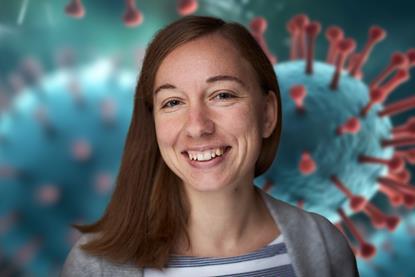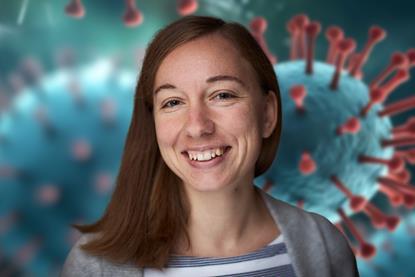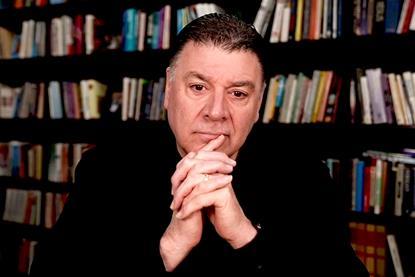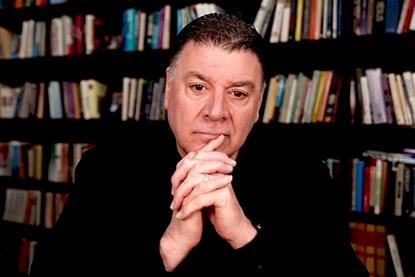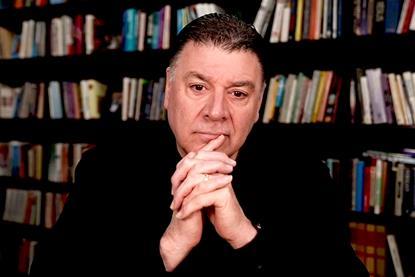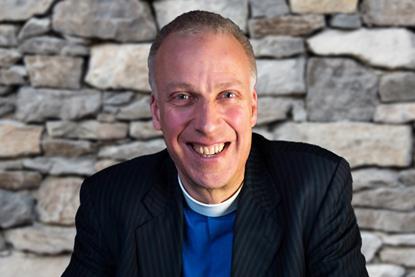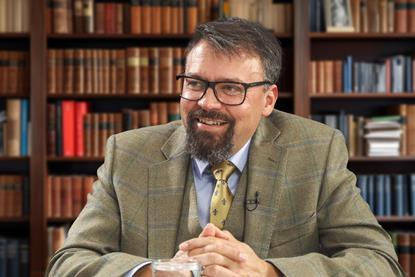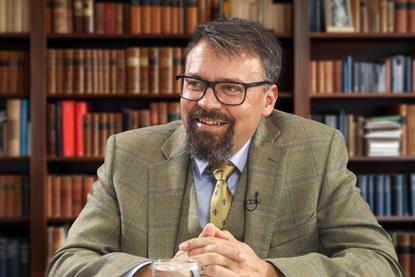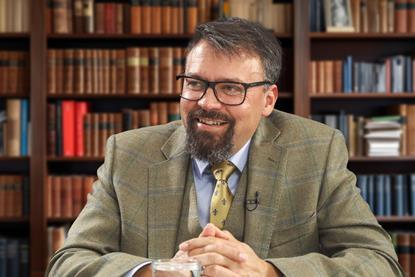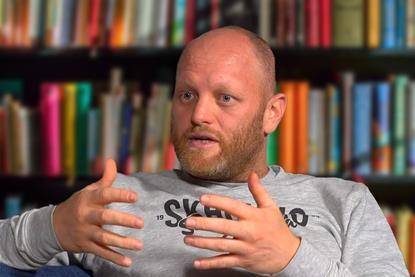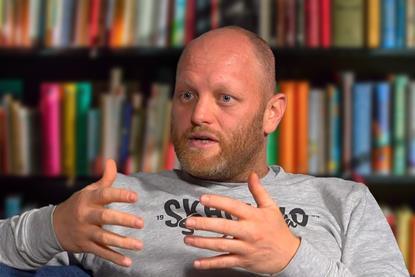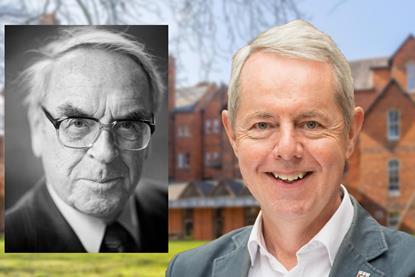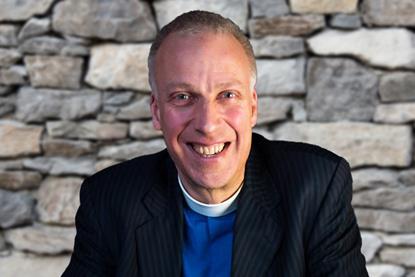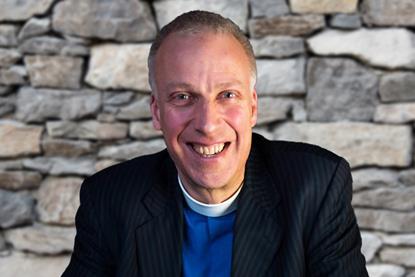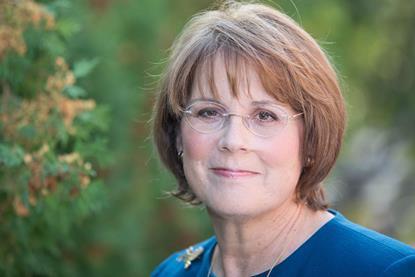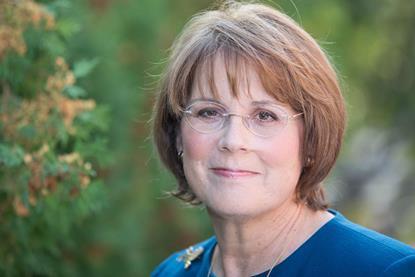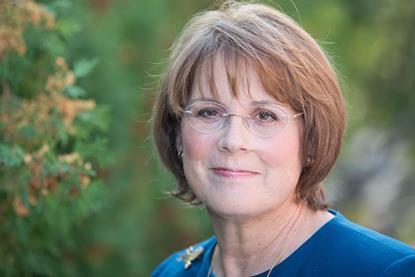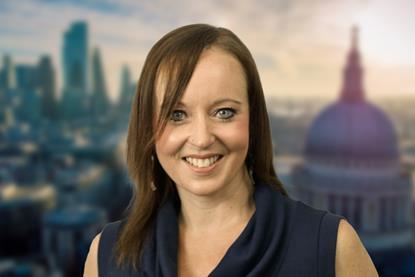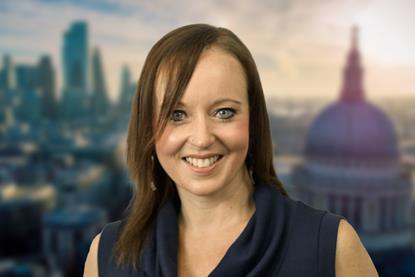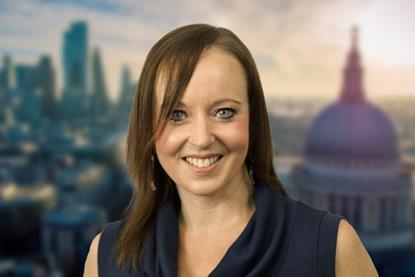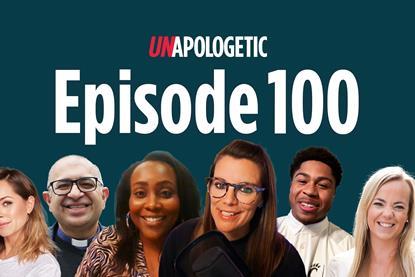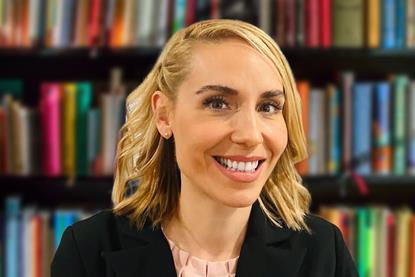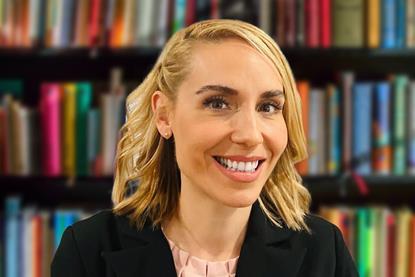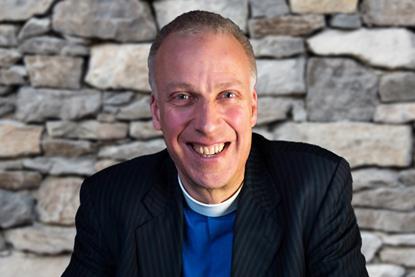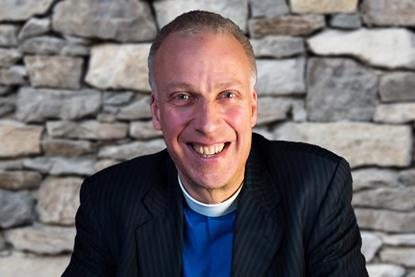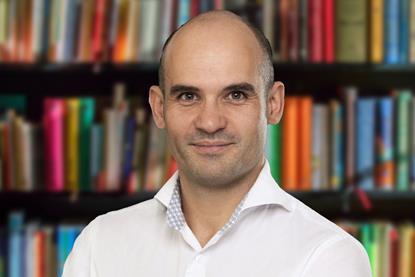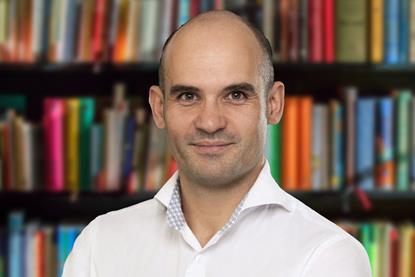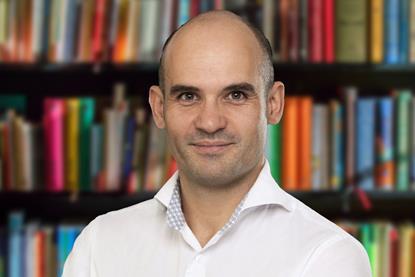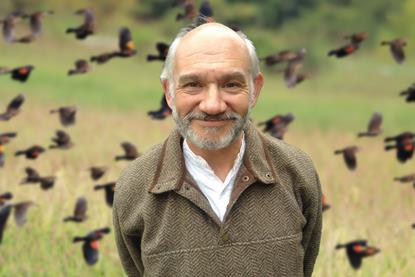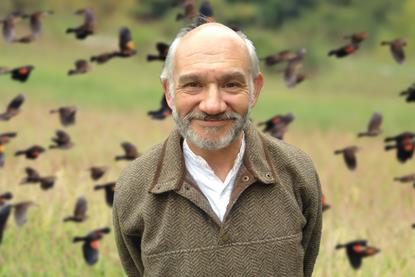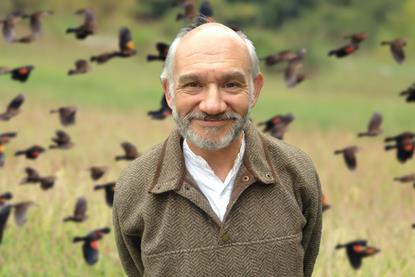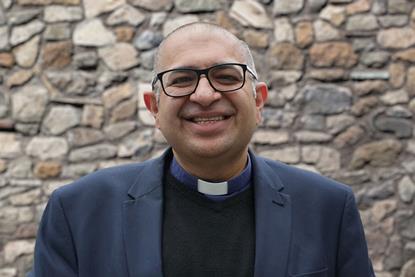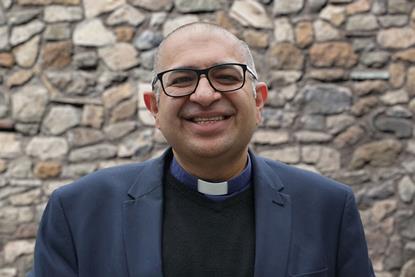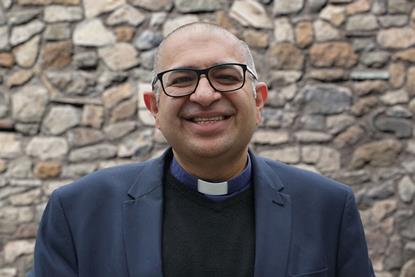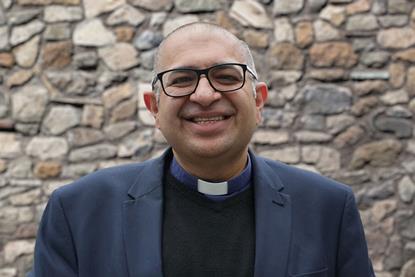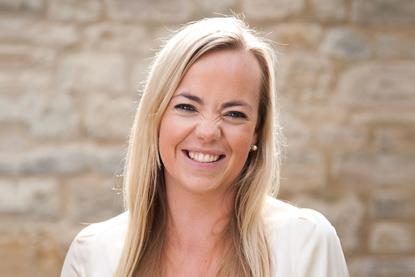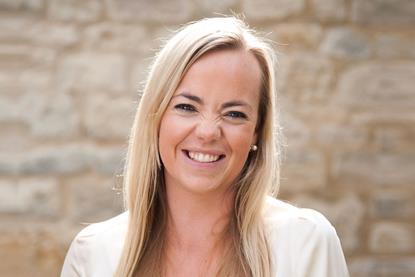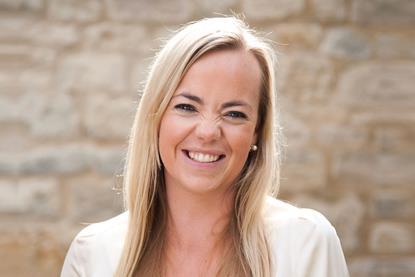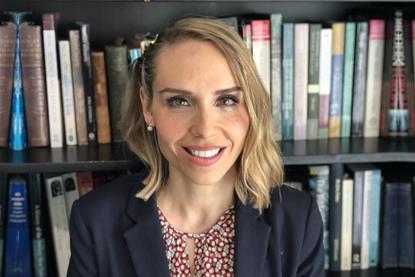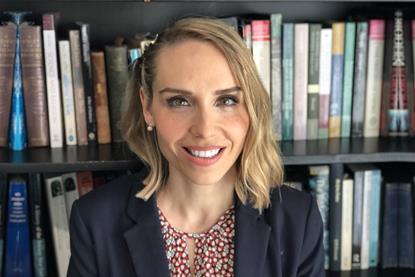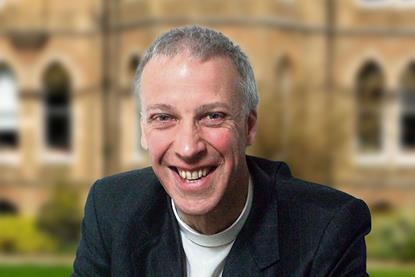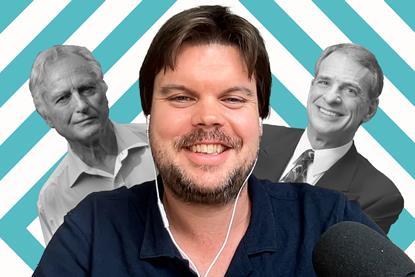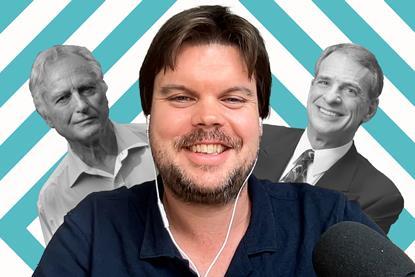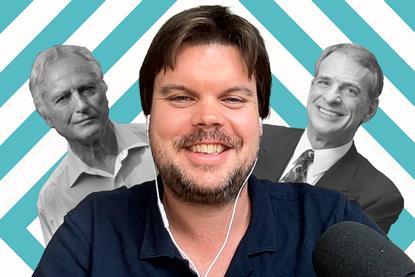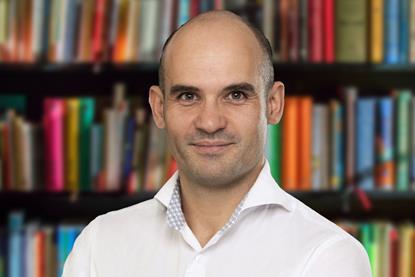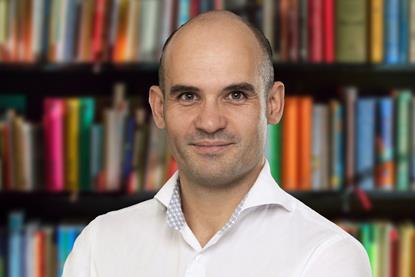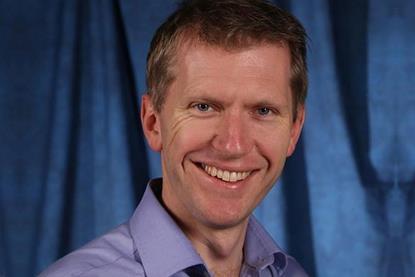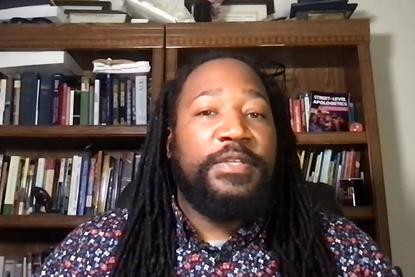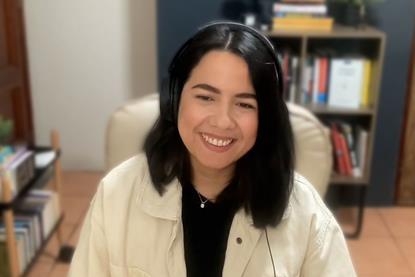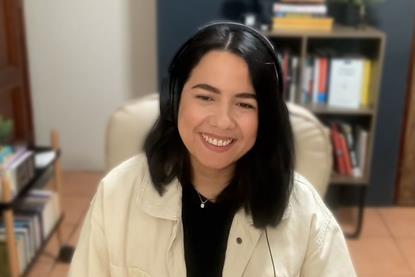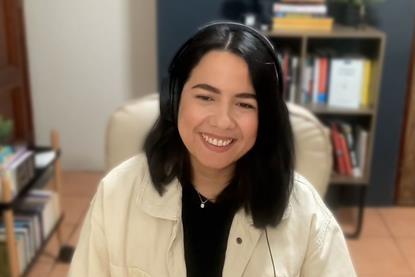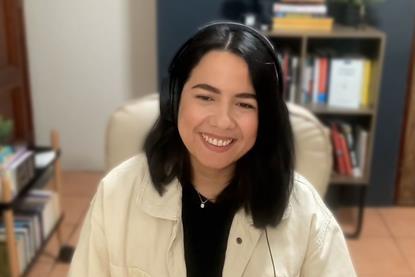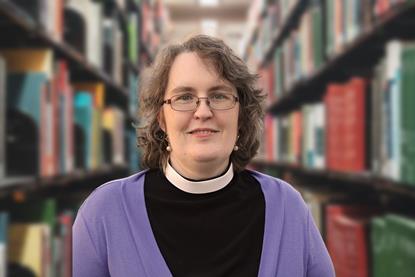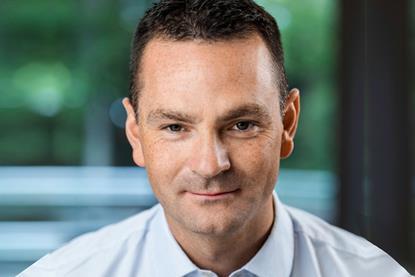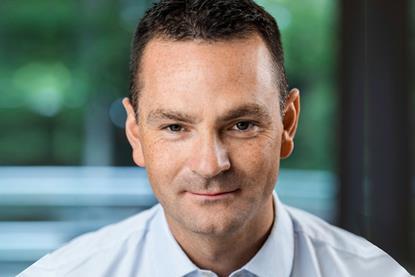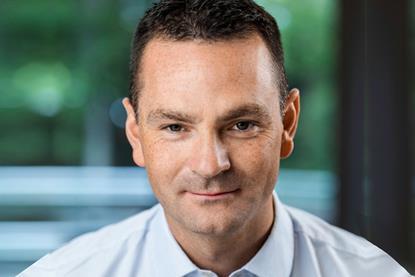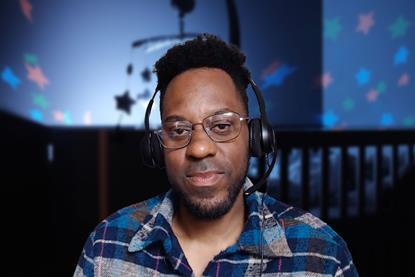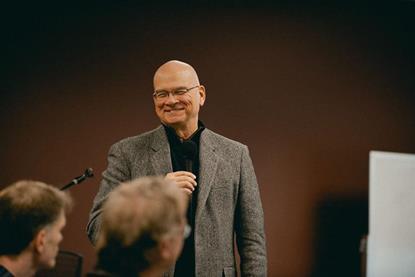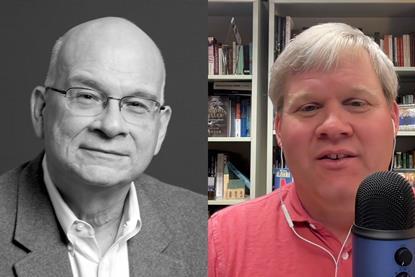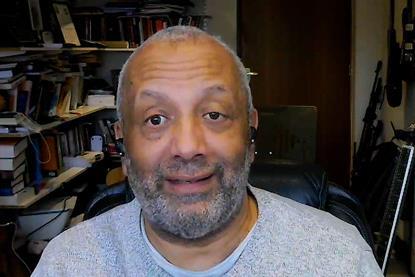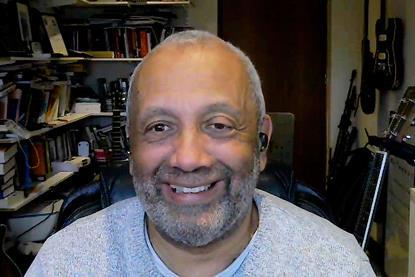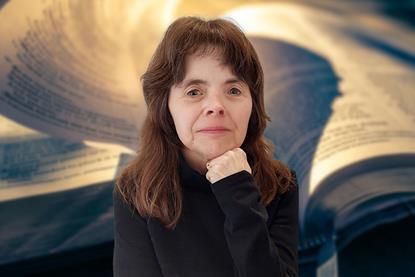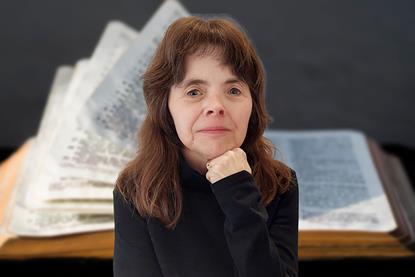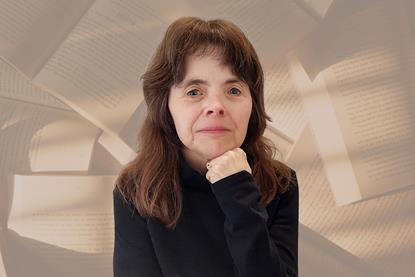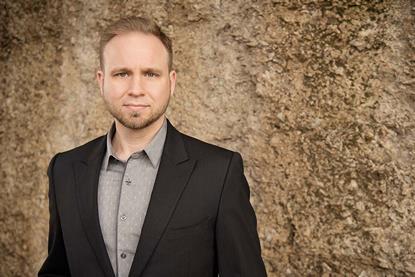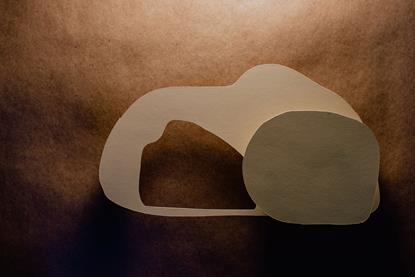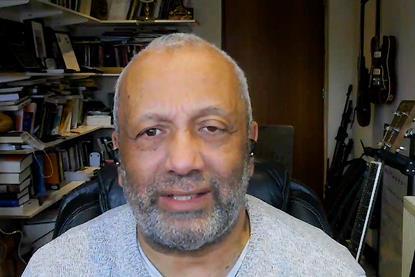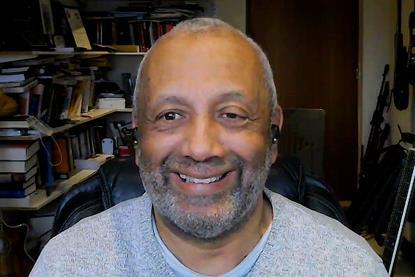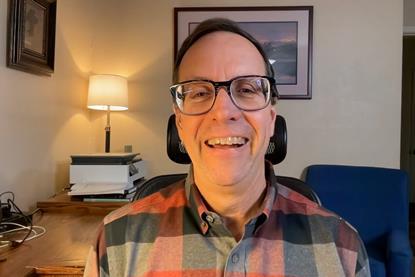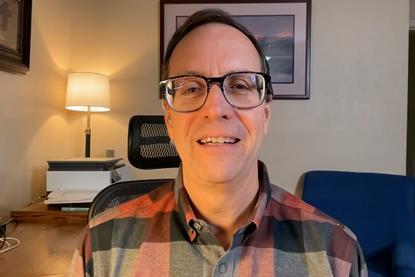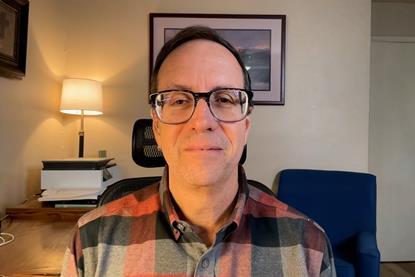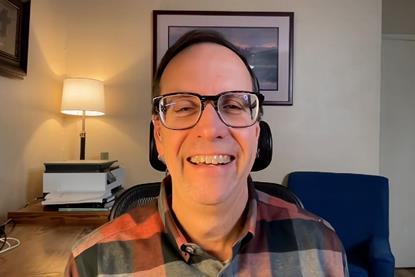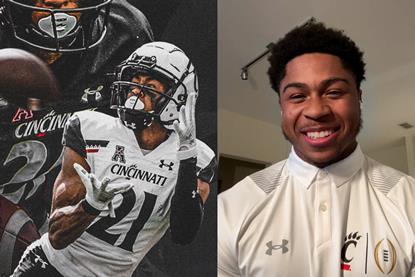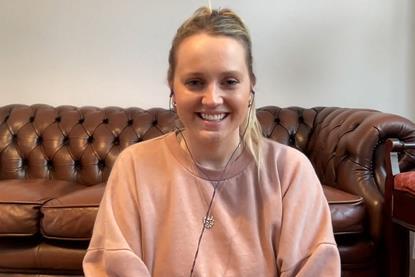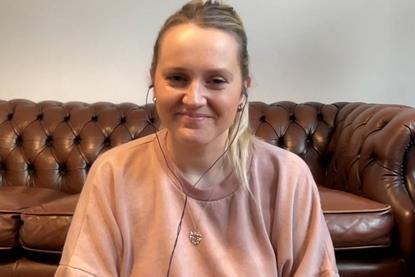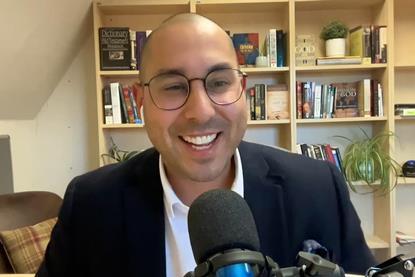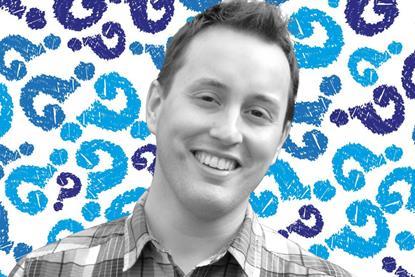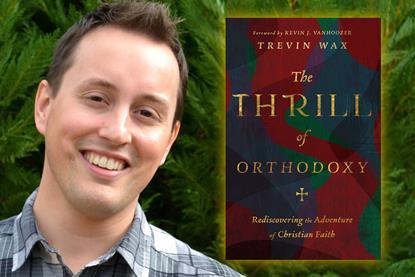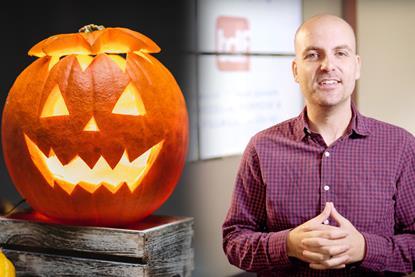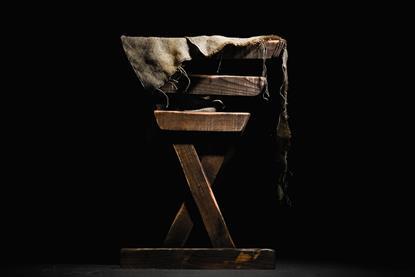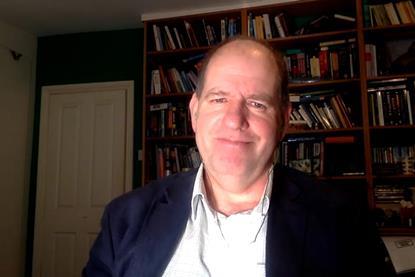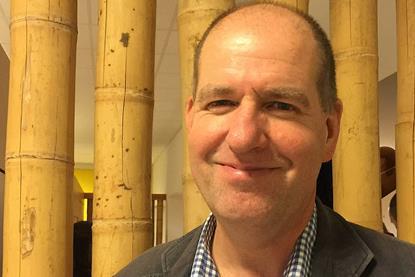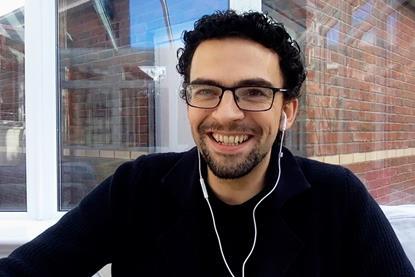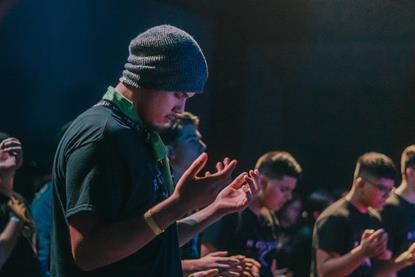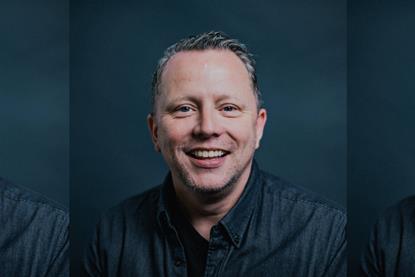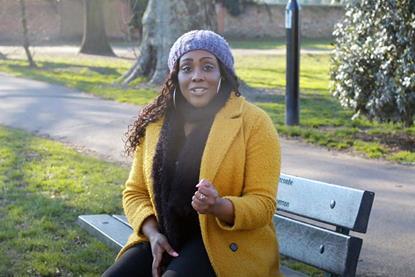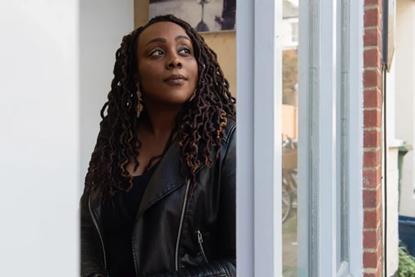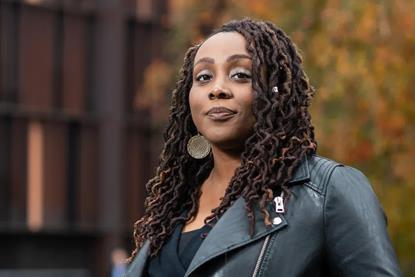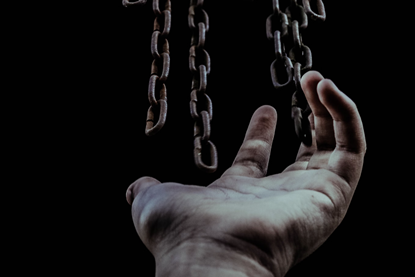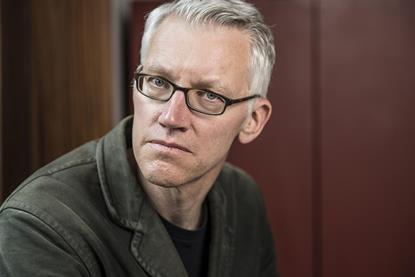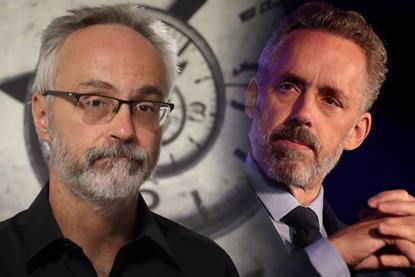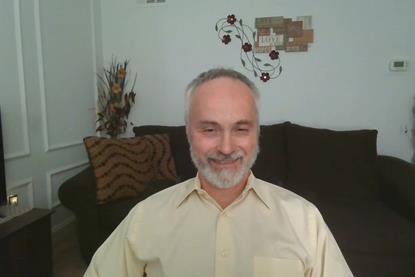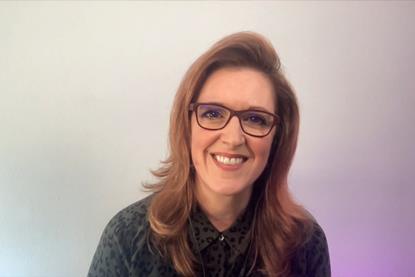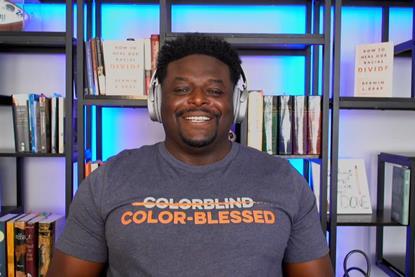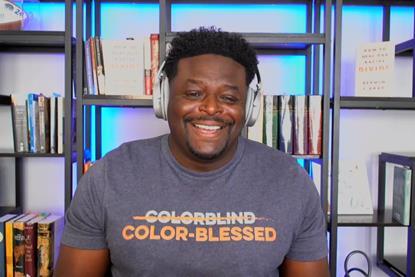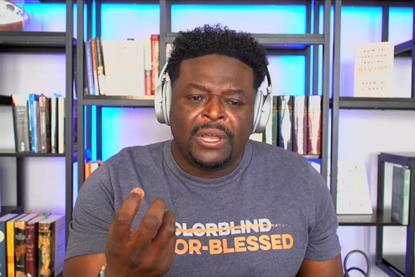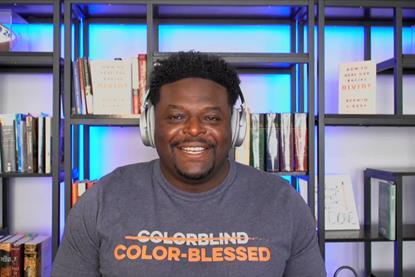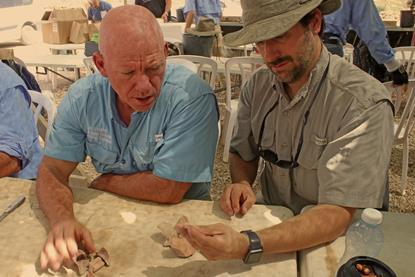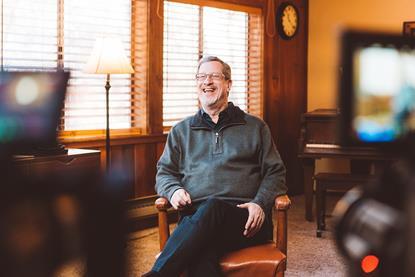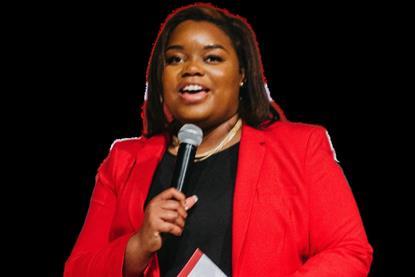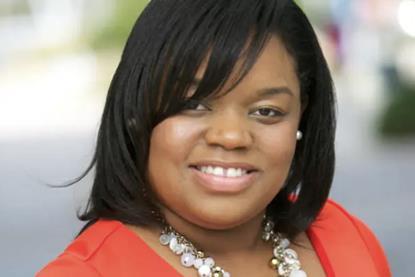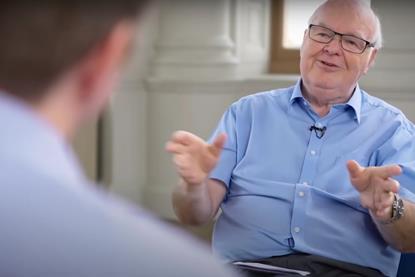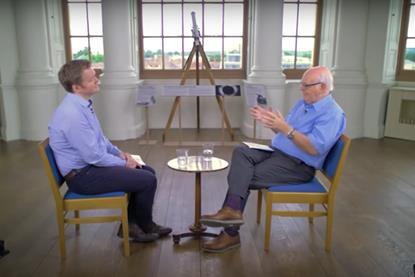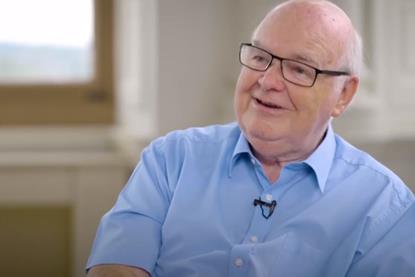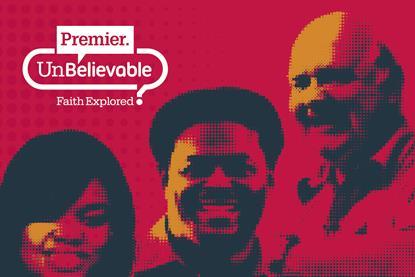Unapologetic
A weekly show from Premier Unbelievable? in which Ruth Jackson interviews leading apologists, theologians and evangelists in order to help Christians understand, defend and share their faith with confidence… unapologetically!
Subscribe to the podcast via your preferred platform or watch on YouTube!
Unapologetic
#122 Mirjam Schilling: Why did God create mosquitoes?
Virologist and theologian Dr Mirjam Schilling answers questions asked by a live audience at Holy Trinity Church, Aylesbury. This show was recorded in partnership with Aylesbury Vale Youth For Christ.
#121 How viruses challenge our perception of good and evil with Christian Virologist Dr Mirjam Schilling
🎙️ Today we venture into the intersection of science and faith with Dr. Mirjam Schilling, a postdoctoral virologist and DPhil student in Science and Religion at the University of Oxford. With her unique background in virology and theology, Dr. Schilling grapples with profound questions about the nature of suffering, the existence of God, and how scientific insights can reshape our understanding of good, evil, and the very fabric of life itself. 🌿🧬
#120 James Emery White: Is online church the way forward?
What are the dangers of online and how do we navigate them? How can we respond to AI? What is TikTok spirituality and why should we engage with it? How has the digital world impacted our relationships? Is online church just watching TV or is a hybrid model the only way forward? Dr James Emery White, author of Hybrid Church, explores questions around digital outreach and Church.
#119 James Emery White: Should we prioritise young people?
Who are Generation Z and Alpha and why do they matter? How have algorithms impacted the way our young people think? What is so significant about being raised in a TikTok world? How are young people approaching politics and which way should they vote? Can Christianity ever be attractive to young people? How do we protect our children in a pornified world? Dr James Emery White, author of Meet Generation Z, shares his thoughts.
Unapologetic #118 James Emery White: Is Christ irrelevant in a post-Christian culture?
What are the marks of a post-Christian culture and why is this significant? How do we engage in apologetics in this context? Are young people disinterested in religion or are we just attempting to answer questions they’re not asking? Who are the “nones” and why are they on the rise? Dr James Emery White, founding and senior pastor of Mecklenburg Community Church and author of numerous books including The Rise of the Nones, shares his thoughts.
Unapologetic #117 Nicola Morrison: How to find hope in despair
How do we differentiate truth from disinformation? Is it possible to verify the truth of Christianity in a similar way? How can we cope with injustice, discrimination and racism? Are we able to reconcile the goodness of God with the horrendous suffering we experience? Where can we turn in the midst of mental health struggles? Nicola Morrison, author of Victory is My Name, shares her thoughts.
Unapologetic #116 Nicola Morrison: A trip to church saved my life
Nicola Morrison, an editor and former BBC reporter, has experienced many highs and lows in her personal and professional life. She shares her struggles with childhood trauma, mental health difficulties and career setbacks. Following a failed attempt to take her own life, Nicola visited a church, which changed the trajectory of her life forever. You can read more of her story in Victory is My Name.
Unapologetic: #115 Michael Lloyd: Culture wars, creativity and relativism
Could a decline in creativity and beauty be why the Church has become increasingly irrelevant and unlikeable? What are culture wars and how should we respond? Is relativism flawed and what is the alternative? Does human creativity point to God? Rev Dr Michael Lloyd, principal of Wycliffe Hall, shares his thoughts about culture, creativity and The New Renaissance Project.
Unapologetic #114: Joe Boot: Resurrection, miracles and climate change
Is there any proof for the resurrection of Jesus? Are miracles a genuine possibility? How should we respond to global injustice and environmental breakdown? What practical ways can we use apologetics in everyday situations? We hear from Rev Dr Joe Boot, founder and president of the Ezra Institute for Contemporary Christianity. This interview was recorded in front of a live audience at Holy Trinity Church, Aylesbury in partnership with Aylesbury Vale Youth For Christ.
Unapologetic #113 Joe Boot: Is there a role for apologetics in culture?
Rev Dr Joe Boot, founder and president of the Ezra Institute for Contemporary Christianity, explores what shapes and drives culture. What are the cultural implications for certain world and life views? Is there a place for Jesus in politics? This interview was recorded in March with a live audience at Holy Trinity Church, Aylesbury in partnership with Aylesbury Vale Youth For Christ.
Unapologetic #112 Joe Boot: Why believe?
What is cultural apologetics? Can a biblical worldview make sense of human experience? What are some of the biggest objections to the Christian faith? Rev Dr Joe Boot, founder and president of the Ezra Institute for Contemporary Christianity shares his thoughts. This interview was recorded in front of a live audience at Holy Trinity Church, Aylesbury in partnership with Aylesbury Youth For Christ.
Unapologetic #111: Johan Erasmus: Is there more to life than atheism?
Afrikaner pastor Johan Erasmus shares the second half of his story. Why did the New Atheists’ arguments lose their appeal? How did the Bible become less embarrassing? Where does he turn with his doubts? In what ways does Johan’s faith inform his passion for racial reconciliation? Read more in Coming To Faith Through Dawkins.
Unapologetic #110 Johan Erasmus: Were the New Atheists right?
Following the death of his father as a child, Afrikaner pastor Johan Erasmus struggled to find a place where he could ask sceptical questions about faith, God and the Universe. During this time he discovered CS Lewis, but also Richard Dawkins, Sam Harris and Christopher Hitchens.
Unapologetic #109 Justyn Terry: Jürgen Moltmann on suffering, politics and hope
Does God suffer? How does a “crucified God” speak to our pain? Where can we find hope? How should we engage with politics?
Unapologetic #108 Michael Lloyd: Why did God create wasps?
Why are our prayers not answered? Where does the cross fit into the problem of suffering? Why did God create creatures like mosquitoes, poisonous snakes and wasps? Does God always get his way? Can good ever come out of suffering? Rev Dr Michael Lloyd, author of Cafe Theology, continues his discussion about evil and suffering.
Unapologetic #107 Michael Lloyd: Why does evil exist?
Rev Dr Michael Lloyd, author of Cafe Theology, explores a number of Christian responses to evil and suffering. Which theories are the most intellectually, emotionally and pastorally consistent and satisfying? We also look at the doctrine of the fall. Why is it significant? Is it compatible with evolution? Was there a fall of angelic beings as well as humanity?
Unapologetic #106 Kathy Keller: Why does God allow suffering?
Kathy Keller is no stranger to suffering, so how is she able to attest to the goodness of God in the midst of great pain? How does she respond to unanswered prayer? Does she have any advice about coping with anxiety? Is it possible to hold on to hope during tragedy?
Unapologetic #105 Kathy Keller: Why I changed my mind on women ordination
We continue our conversation with writer, editor and speaker Kathy Keller. Why did their sons believe her and Tim should never offer parenting advice?! What did they learn at Hopewell, Virginia that proved invaluable when planting Redeemer in New York? Why did Kathy leave seminary convinced ordination was no longer a viable option for her?
Unapologetic #104 Kathy Keller: Life, marriage and death
As we approach the one year anniversary of apologist Tim Keller’s death on May 19th, we caught up with his wife Kathy Keller. Are there any stories about Tim that have particularly encouraged her family in recent months? How did a sick dog lead her to Jesus as a child? What marriage advice would she offer to those just starting out on their journey?
Unapologetic #103 Rachael Heffer: Are young people more spiritual?
In the final part of their conversation about the Talking Jesus research, Rachael Heffer, head of mission at the Evangelical Alliance, shares her thoughts around some important questions. Why are young people leaving the Church? How do we navigate tricky cultural conversations? What are her top tips for family discipleship?
Unapologetic #102 Rachael Heffer: Do people want to engage in conversations about faith?
How do people respond to hearing about God? Has the general opinion of the UK shifted on matters of faith in recent years? What do young people think? How confident are Christians about sharing their faith? How do we approach people’s big questions?
Unapologetic #101 Rachael Heffer: What does the UK think about faith?
Rachael Heffer, head of mission at the Evangelical Alliance, shares her thoughts around the Talking Jesus research. What do the UK public think about the Church, Christians and Jesus? Who are the “nones” and why has there been such a rise in this category of people? What questions are young people asking? Are people actually interested in God?
Unapologetic #100 Ruth Jackson: 100th Episode Special
Ruth Jackson shares some of her favourite moments over the last 99 episodes, including an opiate addict becoming a Christian apologist via a near death experience, an analytic philosopher on why she believes the gospel narratives are reliable, an NFL player on how he’d choose Jesus over winning the Super Bowl and a theologian exploring whether Jesus had a sex drive.
Unapologetic #99 Sarah Irving-Stonebraker: How can we be effective priests of history?
Associate Professor Sarah Irving-Stonebraker, author of Priests of History, explores the results of ahistoricism in the Church. Does disconnection from the past lead to individualism? How do we use ancient spiritual practices in a modern setting? Can history help us to use our time well?
Unapologetic #98 Sarah Irving-Stonebraker: Is history irrelevant?
Associate Professor Sarah Irving-Stonebraker, author of Priests of History, explores the characteristics and impact of living in an “ahistoric” age. How can history help us navigate the culture wars? Can we reconnect with the past?
Unapologetic #97 Jay Y Kim: Did Jesus really rise from the dead?
Pastor Jay Y Kim explores how Holy Week brings hope. Why are we all so afraid of death? What difference does Easter make? Did the resurrection actually happen and why does it matter?
Unapologetic #96 Jay Y Kim: Analogue presence in a digital world
Jay Y Kim shares his experience as a pastor in Silicon Valley. How is technology forming us? In what ways can we help young people live fruitfully in the digital space? How do we navigate AI? Are there any tips for finding rest in the midst of the busyness? In an era of misinformation, how do we decipher what is actually true?
Unapologetic #95 Jay Y Kim: Doubt and deconstruction
Jay Y Kim, a pastor in Silicon Valley and author of multiple books including Listen, Listen, Speak, shares his experience of losing and rediscovering his faith. What are some of the reasons people leave the Church or aren’t even remotely interested in the first place? What should we do with our doubts? How do we ensure everyone feels welcome?
Unapologetic #94 Hannah Martin: Makeup royalty on supporting those who struggle with Mother’s Day
Renowned makeup artist Hannah Martin explores how to support people who find Mother’s Day difficult for a plethora of different reasons. She bravely shares her own journey of losing her mother and her heart-breaking struggle with infertility and miscarriage. Are there practical ways churches can support those who are grieving? How do we celebrate Mothering Sunday in a sensitive way? Where can we look for hope?
Unapologetic #93 Hannah Martin: Makeup artist to the stars on life, faith and navigating a filter-obsessed culture
Hannah Martin, “the queen of radiant skin and smoky eye tutorials” (British Vogue) and world-class makeup artist to the stars, shares her philosophy on beauty.
Unapologetic #92 Michael Lloyd: Did Jesus have a sex drive?
What does the image of God say about our sexuality? What does that mean for single people? How did Jesus’ sexual safeness help to heal people’s broken sexuality and what did Jesus say about sex?
Unapologetic #91 Michael Lloyd: Where does our value come from?
Rev Dr Michael Lloyd, co-author of Image Bearers, explores how the image of God shapes our understanding of what it is to be human. Is secular psychology sufficient? Why is restoration necessary? How does community help? Why is diversity so important?
Unapologetic #90 Phil Knox: Should God be your best mate?
In this final episode with evangelist Phil Knox, we explore friendship with God. Can God be our friend? How do we prioritise and pursue the presence of God? Must we ensure the Lord Almighty doesn’t become the Lord Almatey?
Unapologetic #89 Phil Knox: Did Jesus have favourites?
Evangelist Phil Knox continues sharing his top tips for making and maintaining friends. Why is diversity so important in friendship? How do we get the balance of fun and vulnerability? What can we learn from Jesus’ friendships?
Unapologetic #88 Phil Knox: Why do we need friends?
Evangelist Phil Knox, author of Story Bearer and The Best of Friends, shares why personal tragedy and the COVID pandemic led him to write a book about friendship. Why does friendship matter? How do we protect our friendships from modern pressures? And how do we help young people to engage healthily with technology and social media?
Unapologetic #87 Andrew Gosler: Are Christianity and evolution compatible?
In the final part of this discussion, Rev Andrew Gosler, professor of Ethno-ornithology at Oxford University, explores whether we can reconcile the Bible and a scientific worldview. He also shares how he became a priest in the Church of England.
Unapologetic #86 Andrew Gosler: Why the neo-Darwinian framing of evolution is profoundly flawed
Rev Andrew Gosler, professor of Ethno-ornithology at Oxford University, highlights some of the deficiencies he sees in Richard Dawkins’ work. He also shares the potential limitations and dangers of a neo-Darwinian framing of evolution, such as racism and eugenics.
Unapologetic #85 Andrew Gosler: Coming to faith through Dawkins
Rev Andrew Gosler, professor of Ethno-ornithology at Oxford University, shares how working in the same department as Richard Dawkins and reading his publications eventually led him to become a Christian. Plus, he shares a fascinating story about answered prayer.
Unapologetic #84 Finding faith at Christmas and the Atheist Christmas Queen
In this Christmas special, Ruth Jackson speaks to an atheist who loves Christmas, but not Christ. They discuss whether atheists should celebrate a festival focussed on someone they don’t believe in. Plus, we hear from entrepreneur Jonathan Self who became a Christian largely through Christmas. Why was the festive period so significant and what difference has Jesus made in his life?
Unapologetic #83 Bishop Arun Arora: Stormzy, women ordination and the hope of Christmas
In the final part of his discussion with Ruth Jackson, Bishop Arun Arora, author of Stick With Love, looks at some modern day saints including former Archbishop John Sentamu, Stormzy, Cardinal Van Thuân and Rev Dr Florence Li Tim-Oi. Why did Stormzy’s mum skip his Glastonbury performance to go to church? And how does the Christmas story speak hope to a dark world?
Unapologetic #82 Bishop Arun Arora: Saint Nicholas, George Floyd and unanswered prayer
Who was the real Saint Nicholas? Why was he so passionate about Jesus’ divinity? And why does it matter who Jesus is? Bishop Arun Arora, author of Stick With Love shares his thoughts on a number of saints and looks at how to address the problem of unanswered prayer. How does the Christmas story speak to our suffering? Plus, we hear how God transformed George Floyd’s life while he was in prison and what what can we learn from his life and tragic death.
Unapologetic #81 Bishop Arun Arora: Advent, the incarnation and racial justice
Does it matter what Jesus looked like? Bishop Arun Arora, author of the Archbishop of York’s Advent book Stick With Love, shares his thoughts about a poll that voted Jesus the greatest black icon of all time. Plus, he suggests why asking someone where they’re really from demonstrates an otherness, which unhelpfully seeks to distinguish rather than unify.
Unapologetic #80 Bishop Arun Arora: What is Advent and why is it significant?
Bishop Arun Arora, author of the Archbishop of York’s Advent book Stick With Love, shares how a young Brummie with a Sikh dad and Hindu mum became a Christian through Billy Graham. Having been in the Church for 30 years before he saw another Asian man in Church leadership, Arun shares why he and the Archbishop of York have such a strong commitment to racial justice.
Unapologetic #79 Amy Orr-Ewing: Is there any evidence for a virgin birth?
In the final part of their discussion, Dr Amy Orr-Ewing discusses whether we can believe in a virgin birth, why this birth is significant and how we can trust the witness of Mary. Plus, why is justice important to the Christmas story? And, how can Jesus be both fully God and fully man?
Unapologetic #78 Amy Orr-Ewing: Why are women central to the Christian story?
Dr Amy Orr-Ewing, author of Mary’s Voice, explores the context of Mary, mother of Jesus, and looks at why women play such a significant role in Christianity. Plus, what is the Magnificat, why is it so revolutionary? And how is it relevant today?
Unapologetic #77 Amy Orr-Ewing: Why does Mary matter?
Dr Amy Orr-Ewing, author of Mary’s Voice, shares the story of her academic father becoming a Christian and how that impacted their whole family. She describes the experience of being grilled by 14 Oxford dons about her theology undergraduate exam papers the day before her wedding! Plus, Amy explains why she is so impacted by the person of Mary, and how her example brings hope in the midst of deep darkness.
Unapologetic #76 Sarah Irving-Stonebraker: How do we find meaning?
In the second part of their discussion, Sarah Irving-Stonebraker shares how she moved from atheism to agnosticism, ending up in a church. What is meaning? How do we find it? Does Christianity have anything to say to our cultural moment?
Unapologetic #75 Sarah Irving-Stonebraker: How an atheist academic moved towards belief in God
Former atheist-turned Christian Associate Professor Sarah Irving-Stonebraker shares how studying some of the founders of modern science challenged her assumption that religion and science were fundamentally opposed. She also highlights the moment she realised her atheism could no longer sustain her moral commitments.
Unapologetic #74 Michael Lloyd: Should we all study theology?
Rev Dr Michael Lloyd, author of Cafe Theology, shares his story including why he got ordained, how he ended up in academia and why he changed his mind on the ordination of women. He also discusses how to assess the veracity of doctrines and why he believes everyone should study theology.
Unapologetic #73 Peter Byrom: Dawkins’ argument from complexity
In the final part of their discussion, Peter Byrom delves into Dawkins’ argument from complexity, suggesting it may be a circular assumption. They unpack Dawkins’ fascinating exchange with Francis Collins in 2022, where Dawkins admits he may have a presupposition towards materialism. Plus, what does the future hold?
Unapologetic #72 Peter Byrom: Disillusioned with Dawkins
Peter Byrom continues to share his faith journey as told in the chapter he contributed to Coming to Faith Through Dawkins. He discloses how challenging Richard Dawkins on why he wouldn’t debate William Lane Craig led to him becoming something of a YouTube sensation! Peter also shares why he believes apologetics is important and what the final nail in his atheist coffin was.
Unapologetic #71 Peter Byrom: Discovering Dawkins
In the first episode of this three-part series, Peter Byrom shares his fascinating story as told in the chapter he contributed to Coming to Faith Through Dawkins. He outlines how he encountered the apologist William Lane Craig via the New Atheists and discusses his growing disillusionment with Dawkins’ “devastating” argument from complexity.
Unapologetic #70 Phil Knox: Dealing with objections
Why do many people deem religion irrelevant? What are some of the biggest objections to belief in God? Why are droves of young people leaving the Church? Evangelist Phil Knox shares some of his thoughts about these big topics and gives some tips on how to share your faith effectively.
Unapologetic #69 Phil Knox: Does evangelism matter?
Evangelist Phil Knox, author of Story Bearer and The Best of Friends, shares some of his story with Ruth Jackson, speaking about the impact of his dad’s death at a young age. Plus, they discuss why evangelism matters and how we can share our story and be a “good news person in a bad news world”.
Unapologetic #68 Andy Bannister: Do Muslims and Christians worship the same God?
A Christian street preacher who was arrested for alleged hate speech, which included criticising Muhammad, was found not guilty following a recent court hearing. Dr Andy Bannister, director of Solas and author of Do Christians and Muslims worship the same God?, responds to some of the accusations made by the preacher (eg Muhammad married a 6-year-old and had sex with her when she was 9) and discusses how we can engage with some of these big questions.
Unapologetic #67 Adam Coleman: 60 years on has Martin Luther King Jr’s ‘dream’ been realised?
Monday 28th August marked 60 years since the 1963 March on Washington for Jobs and Freedom, where Martin Luther King Jr delivered his iconic ‘I have a dream’ speech on the steps of the Lincoln Memorial. Adam Coleman’s grandfather was personally invited to attend the event by Dr King. Adam spoke about his grandfather’s experience and reflected on the last 60 years - how far we’ve come and how far we still have to go when it comes to racial justice.
Unapologetic #66 Ana Ávila: How to be productive without burning out
In the second part of her final conversation with Ruth Jackson, Ana Ávila, author of Aprovecha Bien El Tiempo, explores how we can be more productive with our time. She responds to the objection that someone is too busy to read the Bible, pray or go to church, and shares five top tips for avoiding burnout
Unapologetic #65 Ana Ávila: How to avoid burn out
Ana Ávila, author of Aprovecha Bien El Tiempo, shares her insights around how to identify and avoid burnout, how to rest well and how to master technology rather than letting it control us.
Unapologetic #64 Ana Ávila: Has science disproved religion?
Ruth Jackson continues her conversation with Mexican writer Ana Ávila who studied clinical biochemistry. Why is there a perceived conflict between science and religion? Does science contradict the Bible? Can you prove there is a God?
Unapologetic #63 Ana Ávila: Faith, questions and apologetics in Latin America
Mexican writer Ana Ávila, who lives in Guatemala, shares her insights into religion in Latin America. How do we probe our beliefs? What does evangelism look like in a nominally Christian culture? How is apologetics received in some of these countries and what are the big questions being asked?
Unapologetic #62 Dr Jennifer Woodruff Tait: Does Christian history matter?
Dr Jennifer Woodruff Tait, managing editor of Christian History magazine, discloses how looking at the past can help us with the future. She shares some of the interesting steps in her career, from preaching to her stuffed animals at the age of 4, to professor, music director, librarian and priest (and brown belt in Karate!). Plus, she offers her thoughts around the Asbury revival.
Unapologetic #61 Vince Vitale: Why does God allow suffering and how can I cope?
Philosopher Dr Vince Vitale presents some of his PhD research around evil, suffering and theodicy. He and Ruth Jackson share their own experiences of suffering miscarriages, demonstrating that this is not just a theoretical question of why there is pain, but a deeply practical one of how we are to deal with this agony.
Unapologetic #60 Vince Vitale: Can we be confident in our belief?
Ruth Jackson continues her conversation with Dr Vince Vitale, one of the new guest hosts of Premier Unbelievable?, who shares why he developed a passion for evangelism and apologetics. They discuss how he responded to questions and objections academically in the area of philosophy, but also on the sports field with his team mates at Princeton and Oxford.
Unapologetic #59 Vince Vitale: From scepticism to Christian apologist
Ruth Jackson speaks to Dr Vince Vitale, one of the new guest hosts of Premier Unbelievable?, about his journey from scepticism to Christianity while studying philosophy at Princeton University.
Unapologetic #58 Collin Hansen: Does anyone care about apologetics?
Are people even asking questions? If so, are those questions dramatically different from what they used to be? How should we respond to our rapidly changing culture? Collin Hansen, executive director of the The Keller Center for Cultural Apologetics, looks at some important questions around cultural apologetics and draws on the wisdom of Tim Keller (1950-2023).
Unapologetic #57 Elliott Rae: Fatherhood, mental health and masculinity
Following the birth of his daughter, Elliott Rae was diagnosed with PTSD. Here, the founder of MusicFootballFatherhood (dubbed “the dads’ version of Mumsnet” by the BBC) speaks to Ruth Jackson about experiencing God in the midst of suffering. He shares how becoming a father changed his life and theology. Plus, we hear about how Dwayne Johnson - aka ‘The Rock’ - ended up sharing an article he wrote!
Unapologetic #56 Collin Hansen: Tim Keller (1950-2023) - A pastor to sceptics
In the third part of our discussion with Collin Hansen, author of ’Timothy Keller: His Spiritual and Intellectual Formation’, we focus on Keller’s ministry in New York and beyond. Hansen also shares what Keller would want to say to the global Church and speculates on his lasting legacy.
Unapologetic #55 Collin Hansen: Tim Keller (1950-2023) on women, family life and homosexuality
We continue our conversation with Collin Hansen, author of ’Timothy Keller: His Spiritual and Intellectual Formation’, who highlights some of the key women in Keller’s life, particularly his wife Kathy. Hansen explains why Tim Keller was a complementarian and speaks about Keller’s brother, Billy, who died from AIDS in the 1990s.
Unapologetic #54 Collin Hansen: Remembering Tim Keller (1950-2023)
Following the death of Tim Keller on Friday 19th May, Collin Hansen, author of ’Timothy Keller: His Spiritual and Intellectual Formation’ spoke to Ruth Jackson about Tim Keller’s early life and shared some of his favourite memories of the New York apologist.
Unapologetic #53 John Swinton: Disability, learning difficulties and dementia
John Swinton, professor in practical theology and pastoral care at Aberdeen University and a former psychiatric nurse, challenges the way we approach disability, ensuring we create spaces where everyone belongs and has their spiritual needs met. We also discuss difficult questions around dementia, such as what it means to know God when you have limited conceptual intellectual capacity.
Unapologetic #52 John Swinton: Supporting people with mental health challenges
May marks Mental Health Awareness Week, so we spoke to John Swinton, professor in practical theology and pastoral care at Aberdeen University, who spent 16 years as a psychiatric nurse. He shares his thoughts about how to care for those experiencing mental health difficulties, particularly young people.
Unapologetic #51 Lydia McGrew: Who is the true Jesus?
In the final part of her discussion with Ruth Jackson, Dr Lydia McGrew, an analytic philosopher and author of Testimonies to the Truth: Why you can Trust the Gospels, unpacks some of the more disconcerting elements of Jesus’ character and looks at how this impacts the veracity of the Gospel accounts. She also addresses how the loneliness and suffering of Jesus can speak to a hurting world.
Unapologetic #50 Lydia McGrew: Can we trust the Gospels?
Dr Lydia McGrew, an analytic philosopher and author of Testimonies to the Truth: Why you can Trust the Gospels, explores how reliability is assessed in regards to ancient documents. She tackles some of the alleged contradictions in the Gospels and looks at why certain elements, such as accurate geography, cultural knowledge and names are important.
Unapologetic #49 Lydia McGrew: Is an evidential approach to Christianity feasible?
Dr Lydia McGrew, an analytic philosopher and author, became a Christian at the age of 4. She shares some of her story with Ruth Jackson, including her experience of being adopted, her prevailing wrestle with the problem of evil and why she’s passionate about an evidential approach to Christianity.
Unapologetic #48 Jeremiah Johnston: Are there credible reasons to believe in God?
Dr Jeremiah Johnston, president of the Christian Thinkers Society and father to five children (including triplets!), shares his journey into apologetics, looking at the importance of engaging both the head and heart. As well as speaking about how to live distinctively, ask good questions and allow room for doubt, Jeremiah unpacks some of the big issues impacting young people today.
Unapologetic #47 Jeremiah Johnston: The 7 best reasons to believe Jesus rose from the dead
New Testament scholar Dr Jeremiah Johnston shares ground-breaking research from his new book ’Body of Proof: The 7 Best Reasons to Believe in the Resurrection of Jesus-and Why It Matters Today’. He also explains how we can experience overwhelming hope in the midst of great suffering if Jesus really rose from the dead.
Unapologetic #46 John Swinton: darkness, death and extreme suffering - how Holy Week brings hope
In part two of his discussion with Ruth Jackson, Professor John Swinton shares what Holy Week means to him and explores what impact the suffering, death and resurrection of Jesus has on a world in need of hope.
Unapologetic #45 John Swinton: a psychiatric nurse-turned practical theologian on suffering, faith and spiritual care
Ruth Jackson speaks to John Swinton, professor in practical theology and pastoral care at Aberdeen University. Having spent 16 years as a psychiatric nurse, John speaks about the importance of spiritual care in medicine. He also shares his thoughts on the problem of suffering.
Unapologetic #44 Bruce Miller: Is the Bible reliable?
In this final episode, Bruce Miller, author of The 7 Big Questions: Searching for God, Truth, and Purpose, explores objections towards the Bible, including whether it is sexist, racist and out of date. Bruce also asks whether we can know and experience God personally, looking at why he doesn’t make himself more obvious.
Unapologetic #43 Bruce Miller: Is Christianity true?
Bruce Miller, author of The 7 Big Questions: Searching for God, Truth, and Purpose, tackles two huge questions: is Christianity too narrow and is Jesus really God? He also explores whether Jesus really rose from the dead.
Unapologetic #42 Bruce Miller: If God exists why does he allow suffering?
Ruth Jackson continues her conversation with Bruce Miller, author of The 7 Big Questions: Searching for God, Truth, and Purpose. He highlights some of the arguments for the existence of God and unpacks one of life’s hardest questions, looking at moral evil, natural suffering and the Christian response to pain.
Unapologetic #41 Bruce Miller: Does life have a purpose?
In the first of four episodes on how to approach some of life’s most difficult questions, Ruth Jackson speaks to Bruce Miller, author of The 7 Big Questions: Searching for God, Truth, and Purpose, about belief, doubt and purpose.
Unapologetic #40 Tyler Scott: What Jesus means to a NFL player
Following Sunday’s Super Bowl, Ruth Jackson spoke to NFL wide receiver, Tyler Scott, about faith, football and the power of prayer.
Unapologetic #39 Lauren Windle: Being single and dating in a marriage obsessed Church
As we approach Valentine’s Day, Ruth Jackson carries on her conversation with author Lauren Windle, who shares her thoughts on singleness, dating and why the Church seems so obsessed with marriage.
Unapologetic #38 Lauren Windle: Finding God in the midst of addiction
Journalist Lauren Windle tells her story of getting sober from alcohol and cocaine, and shares how she encountered the God who changed her life.
Unapologetic #37 Alanzo Paul: a former opiate addict on how to reach young people
Originally from Canada, Alanzo Paul fell into a life of addiction after his parents’ divorce. Here, he shares some of his story with Ruth Jackson, including his reflections on working with Ravi Zacharias. He also looks at some of life’s big questions and suggests ways to reach the apathetic with the gospel.
Unapologetic #36 Trevin Wax: How to tackle objections to Christianity
In the second part of their discussion, Ruth Jackson speaks to Trevin Wax, author of award-winning book ‘The Thrill of Orthodoxy’, about culture wars, evangelism and how to approach life’s big questions.
Unapologetic #35 Trevin Wax: Can Orthodoxy be thrilling?
Trevin Wax, author of award-winning book ‘The Thrill of Orthodoxy’, speaks to Ruth Jackson about what Orthodoxy is, how we articulate it in a modern context and why we should pass it on to the next generation.
Unapologetic #34 Pedro Garcia: I became a Christian through Halloween
Apologist Pedro Garcia speaks to Ruth Jackson about how Halloween kickstarted his journey towards faith in Jesus.
Unapologetic #33 Finding Jesus changed Christmas forever
As we approach a new year, we speak to three people from different backgrounds who found new life in Jesus. They share their stories and talk about how finding Jesus has changed the way they celebrate Christmas for ever.
Unapologetic #32 Charles Foster: The virgin birth, child massacre and Shamanic astrology
In the second half of our discussion about Christmas, Charles Foster, author of The Christmas Mystery, looks at some of the more sinister and less straightforward elements of the biblical Nativity narratives.
Unapologetic #31 Charles Foster: The truth behind the Christmas story
Why do only two of the four Gospels mention Jesus’ birth? What if the Christmas story isn’t true? Can we trust the biblical sources? Charles Foster, author of The Christmas Mystery, answers some of the tricky questions surrounding the Nativity narratives in the Bible.
Unapologetic #30 Murdo Macleod: How John Wycliffe impacted my life
Ruth Jackson spoke to film director Murdo Macleod about his new film ‘Morningstar’, which focuses on John Wycliffe’s life and legacy.
Unapologetic #29 Jon Tyson: Digital evangelism and reaching a lost generation
Ruth Jackson speaks to New York-based pastor Jon Tyson about reaching young people, digital evangelism and parenting.
Unapologetic #28 Jon Tyson: Addressing objections, doubts and questions about the Christian faith
New York-based pastor Jon Tyson shares some of his thoughts about living as a Christian in a secular space.
Unapologetic #27 Clare Williams: 5 ways to re-evangelise black young people
Ruth Jackson speaks to apologist Clare Williams about how we can reach young black people with the gospel.
Unapologetic #26 Clare Williams: Why young black people are leaving Christianity
Ruth Jackson speaks to apologist Clare Williams about black consciousness and why so many young black people are leaving the Church.
Unapologetic #25 Clare Williams: Why racial justice matters
Ruth Jackson speaks to apologist Clare Williams about racial justice, black pain and how the Church should respond.
Unapologetic #24 Clare Williams: Why Black History Matters
As we come to the end of Black History Month in the UK, Ruth Jackson speaks to apologist Clare Williams about how we can support young black people and reach them with the gospel message.
Unapologetic #23 Tom Holland: How the Bible inspired the anti-slavery movement
Why were radical Christians at the forefront of the abolition movement? Historian Tom Holland, author of ‘Dominion’, shares why the story of Jesus dying the death of a criminal slave was the historical catalyst for the modern day anti-slavery movement. The second part of a conversation recorded live with Justin Brierley at the IllumiNations Europe conference in Scotland.
Unapologetic #22 Tom Holland: How the Bible made the Western world
Historian Tom Holland, author of ‘Dominion’, shares why the Bible is the most influential book in the world, shaping concepts of equality, human rights, democacy and more. A conversation recorded live with Justin Brierley at the IllumiNations Europe conference in Scotland.
Unapologetic #21 John Wise: The Christian atheist Pt 2 - How Jordan Peterson and Jenny led me to Jesus
Justin Brierley continues his conversation with John D Wise, known online as ‘The Christian Atheist’. John explains how the psychologist Jordan Peterson and John’s now-wife Jenny played important roles in his conversion to Christianity after 25 years as an atheist philosophy professor.
Unapologetic #20 John Wise: How a philosophy professor found God after 25 years of atheism
Dr John D Wise is known online as ‘The Christian Atheist’ and runs a podcast of the same name. He underwent a remarkable conversion to Christianity after 25 years as an atheist philosophy professor. In part 1 of his conversation with Justin Brierley he describes the journey that took him to the brink of conversion.
Unapologetic #19 Mary Jo Sharp: What to do when church lets you down
After coming to faith as an adult Mary Jo Sharp had some negative experiences of church. She tells Justin Brierley about what happened. Why did she stay? And how can we help young people and new converts navigate the ups and downs of being part of the church?
Unapologetic #18 Mary Jo Sharp: How to talk with young people about love, porn and sex
Mary Jo Sharp frequently addresses the questions young people have about Christianity. That includes questions about sexuality, pornography and relationships. She talks to Justin Brierley about how to have tough conversations with teenagers, based on her new video series Dark Room Faith.
Unapologetic #17 Mary Jo Sharp: What about suffering?
Apologist Mary Jo Sharp talks to Justin Brierley about the problem of suffering and evil and what answers Christianity offers, based on her new video series ‘Darkroom Faith’.
Unapologetic #16 Mary Jo Sharp: Coming to faith and dealing with doubt
A former atheist who came to faith, Mary Jo Sharp now runs the apologetics ministry Confident Christianity. She talks to Justin Brierley about her own conversion and how to deal with doubt based on her new video series ‘Darkroom Faith’.
Unapologetic #15 Derwin L Gray: Building multi-ethnic churches that look like Jesus
Martin Luther King said that ‘11 am Sunday is the most segregated hour in America’. Today, most churches are split along black, white or latino lines. Pastor Derwin L Gray, author of ‘How To Heal Our Racial Divide’, tells Justin Brierely how they have sought to make Transformation Church a truly multi-ethnic community.
Unapologetic #14 Derwin L Gray: How should Christians think about CRT, Black Lives Matter and ‘white privilege’?
Phrases such as Critical Race Theory, Black Lives Matter, ‘antiracism’ and ‘white privilege’ have become polarising issues in Christian circles. Derwin L Gray shares what he thinks Christians need to understand about racism and the controversy surrounding these terms.
Unapologetic #13 Derwin L Gray: What the Bible says about racial reconciliation
Former NFL footballer-turned-pastor Derwin L Gray shares lessons he has learned from leading Transformation Church, the multi-ethnic megachuch he founded, as he continues to open up his book ‘How To Heal Our Racial Divide’
Unapologetic #12 Derwin L Gray: How an NFL footballer found faith in Jesus
Derwin L Gray is a former NFL football player who, along with his wife Vicki, founded Transformation Church - a ‘multicultural, multi-generational, mission-shaped’ church in South Carolina.
Unapologetic #11 Scott Stripling: The game-changing archaeological discovery that supports the Old Testament
Archaeologist Scott Stripling recently made a significant discovery in Israel - a ‘curse’ tablet that could prove the historical authenticity of parts of the Old Testament. He tells Justin Brierley about why this find is so significant.
Unapologetic #10 Lee Strobel: The case for heaven
Legendary apologist Lee Strobel joins Justin to talk about the soul, afterlife and near death experiences as related in his book and video documentary The Case For Heaven.
Unapologetic #9 Lisa Fields: Being a black female apologist
Lisa Fields, fonder of Jude 3 Project continues her conversation with Megan Cornwell on polarisation in the USA and the challenges facing her calling as a black female apologist.
Unapologetic #8 Lisa Fields: Apologetics for the black church
What are the questions being asked today by African-American skeptics and believers about Christianity? Lisa Fields shares her faith journey and why she began the Jude 3 Project.
Unapologetic #7 John Lennox: The case for design in biology and the Universe
In the final part of their conversation Justin and Prof John Lennox talk about the fine-tuning of the universe for life and what the frontiers of evolution and biology tell us about the case for design in nature.
Unapologetic #6 John Lennox: Why God is a good explanation
Justin continue his conversation with Christian thinker Prof John Lennox as they talk about the new atheist attempts to dismiss God as an explanation for the Universe.
Unapologetic #5 John Lennox: God, science and atheism
Renowned Christian thinker Prof John Lennox recounts his own journey with science and faith and explodes a few myths about their supposed conflict in the first of a three part conversation with Justin Brierley.
Unapologetic #4 Glen Scrivener: Choose your miracle - why we’re all believers deep down
Whether we identify as atheist, humanist, Christian or something else, if we believe in rights, moral progress, equality and compassion, then we already believe in things that we can’t see or touch. In this episode Glen Scrivener explains why we are all believers deep down.
Unapologetic #3 Glen Scrivener: Science - How Christianity birthed the scientific revolution
Where did modern science come from? Contrary to popular atheist accounts of the conflict between science and faith, Glen Scrivener argues that Christianity gave the framework of an intelligble universe invested with order that scientists set out to explore.
Unapologetic #2 Glen Scrivener: Compassion - How Christianity made our moral world
Glen Scrivener of Speak Life talks to Justin Brierley about how Christianity birthed the modern concept of showing compassion to the most vulnerable.
Unapologetic #1 Glen Scrivener: How Christianity gave us equality
Welcome to the first episode of Unapologetic, a podcast helping you to understand, defend and share your faith with confidence. Justin begins a 4-part series with Glen Scrivener of Speak Life.
Unapologetic #0 Justin Brierley introduces Unapologetic
Justin Brierley, director of Premier Unbelievable? introduces their newest podcast - Unapologetic




